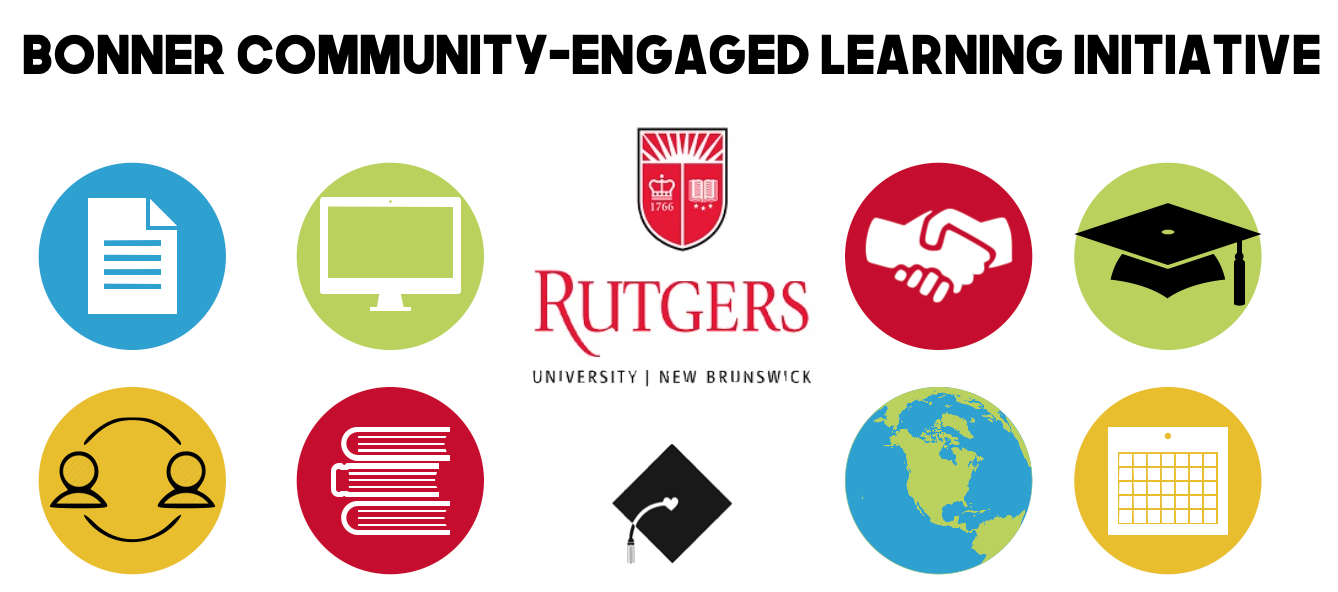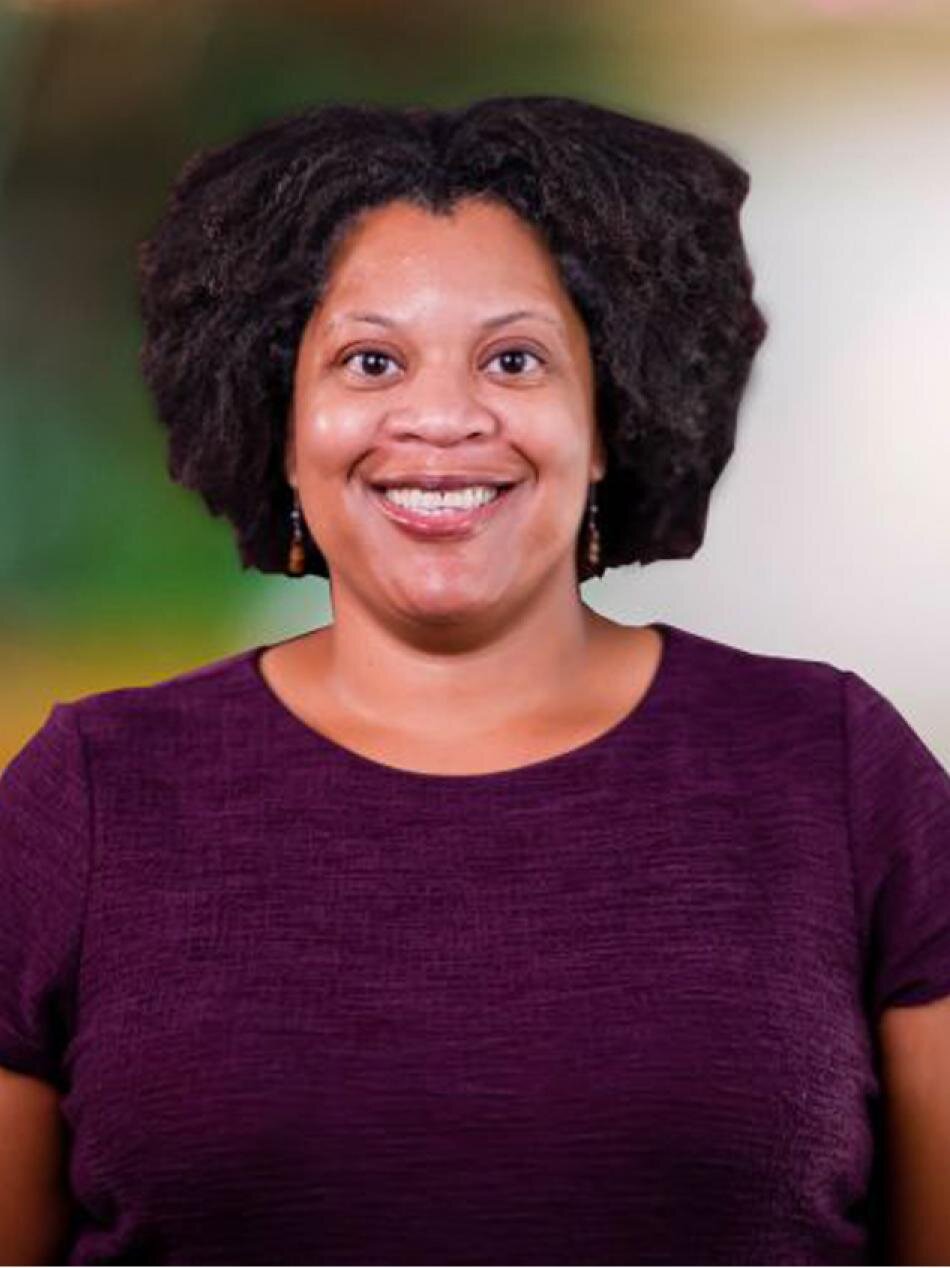CAMPUS PROFILE (2021)
(New Brunswick, New Jersey)
Starting in 2021, Rutgers-New Brunswick has been undergoing a university-wide diversity strategic planning process which centers “defining substantive and sustainable community engagement” as one of its strategic priorities. This process comes on the heels of the self-study conducted for our Reclassification for Carnegie Classification for Community Engagement completed in 2019. Together these processes will position the university to strengthen and organize its efforts in community engagement both in its curricular and co-curricular offerings.
Melissa Wooten, Senior Director of Educational Equity within the Division of Diversity, Inclusion and Community Engagement
Amy Michael, Associate Director, Collaborative Center for Community-Based Research and Service
The reapplication to Carnegie showed that there was an increase in the number of community-engaged courses being taught at the university, yet they were difficult to identify. The self-study also revealed that many excellent efforts in community engagement existed through courses, programs, internships, etc.; however, they were often siloed in departments that made it difficult for students to navigate the full range of opportunities available to them. While the Collaborative Center for Community-Based research had a certificate entitled, “Rutgers Civic Scholar,” it had not been revised to reflect changes in the core curriculum and it was also not known to students until their junior/senior year when it was difficult for them to then complete its requirements. The Community-Engaged Learning grant allowed the members of the team to rethink the current certificate requirements, reset learning goals, and reimagine the certificate as an organizing mechanism for the myriad of opportunities that will push students along a developmental pathway and create cross-disciplinary cohorts of like-minded students.
Led by Dr. Melissa Wooten, Senior Director of Educational Equity within the Division of Diversity, Inclusion and Community Engagement, a group of three faculty fellows, Mary Curran, Marcy Schwartz, and Kathe Newman, along with staff from the Collaborative including Associate Director, Amy Michael, have been working together to provide input into a redesigned certificate. The three faculty fellows come from three different schools of the university respectively, the Graduate School of Education, the School of Arts and Sciences, and the Bloustein School of Planning and Public Policy, yet all three share a deep knowledge and commitment to community engaged learning as long-time practitioners in the field. Since receiving the grant, they started by reviewing peer institutions’ certificate programs based on the following criteria: 1) certificate was multi-disciplinary, 2) was administered in a civic engagement center, not a particular department, 3) provided a developmental pathway including capstones, 4) allowed for flexibility. Initial research led them to five examples to examine more closely as potential models: 1) University of Minnesota – Community Engaged Scholars Program, 2) Indiana University Bloomington, 3) Brown University—Engaged Scholars Program, 4) Duke University—Civic Engagement and Social Change Certificate, and 5) University of Massachusetts—Civic Engagement and Public Service Certificate.
In November and December, the group reviewed the current certificate and the models presented coming up with a draft certificate that would meet the criteria above.
Rutgers University New Brunswick - Certificate Draft
Nathaniel Flores was brought on as a graduate assistant to help them to map out existing courses that could fulfill the criteria and to develop an outreach strategy to departments to get their buy-in and help in identifying courses that met the above criteria. This work has raised important questions that the committee needs to further refine including the need to propose definitions of community-engaged courses; are they requiring enough actual work in the community to warrant a certificate; how to incorporate co-curricular experiences, etc. They plan to reconvene to continue deliberating on these important considerations before pursuing formal recognition by academic governing bodies. They will also be soliciting input from their community partners as a key step in the process.
Parallel yet, overlapping in this work has been the university’s diversity strategic planning process which has involved a series of stakeholder meetings through the spring ‘21 semester to apprise current community engagement activities throughout campus, learn of barriers to engagement, and to imagine ways to address them. Through these meetings, there seems to be a consensus for the need to create pathways for students to navigate community engagement opportunities, to establish criteria for designating community-engaged courses, to assist faculty in teaching them, and to flag them for students on the schedule of classes. As the two planning processes unfold, they are informing each other and will continue through the rest of the spring and summer. In the end, they hope to have a certificate that will play a key role in helping Rutgers-New Brunswick realize its aspirations for community engagement.



